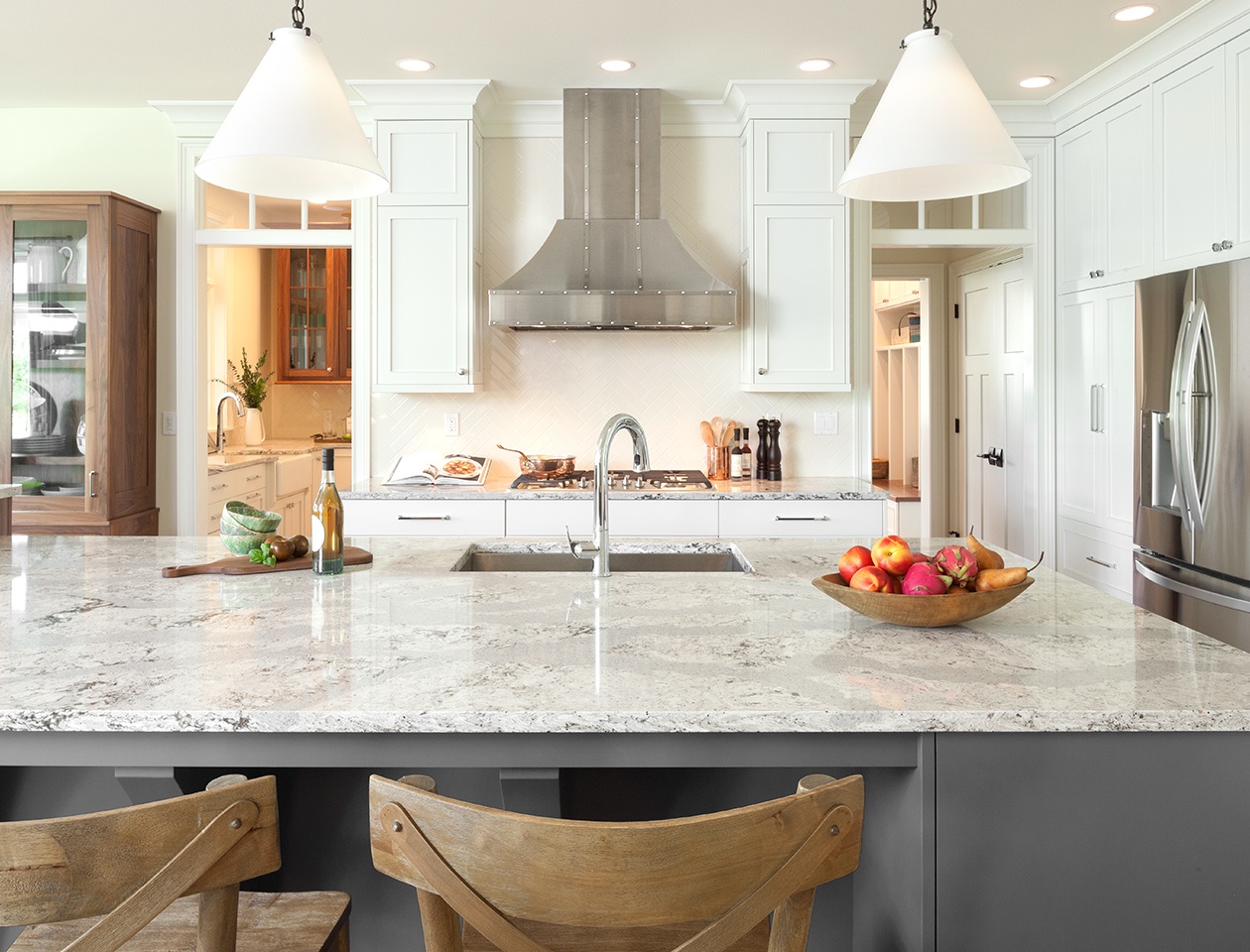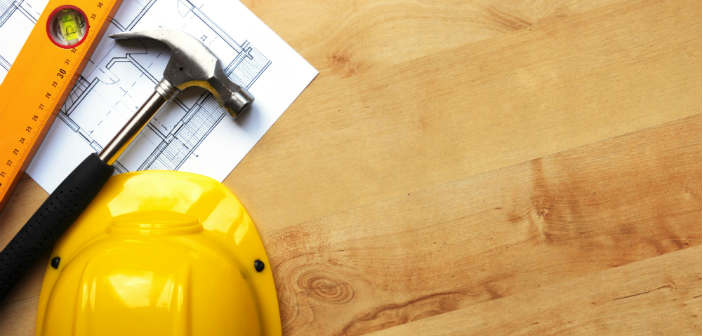The Different Types of Quartz Countertops and How to Care for Quartz Countertops

The Different Types of Quartz Countertops and How to Care for Quartz Countertops
When most people think about countertops, granite is usually what they envision. Quartz countertops, although typically more expensive than granite, are a gorgeous alternative which ultimately pay for themselves. Not only are they beautiful and easy to maintain, but most also include a built-in antimicrobial layer. This layer is ultra-resistant to bacteria and harmful microbes which commonly linger on kitchen surfaces. Say goodbye to your antibacterial spray, and hello to new quartz countertops!
Want to learn more? Read more about granite countertops here! Looking to re-do your counters without a remodel? Check out this post about all the different ways to upgrade yoour countertop without a remodel! If you want to see the pros and cons of concrete countertops, read this!
Types of Quartz Countertops
Most quartz countertops are shipped from overseas, which is one of the reasons they are so expensive. The Spanish-based company Silestone offers one of the most durable forms of quartz. Not only are Silestone quartz countertops highly resistant to stains, scratches, and damage, but they also come with a 25-year transferable warranty. The company also offers a wide range of recycled countertops, which makes it a great option for homeowners looking to make their house a little greener.
For those looking to buy American, Cambria is a great option. Cambria offers gorgeous quartz countertops in nearly every color and design imaginable. Their matte range is even more resistant to spills and damage, making it the perfect option for modern homes. The Camp Cambria Foundation also hosts a summer camp for children affected by juvenile arthritis. By purchasing your quartz countertops from Cambria, you’ll support a family-owned, American business while also contributing to an excellent cause.

Benefits of Quartz Countertops
So what makes quartz countertops better than granite? We’re glad you asked!
Quartz countertops, as we mentioned already, are non-porous surfaces built with an antimicrobial layer, making them highly resistant to bacteria. That means you can ditch the antibacterial spray when it comes to cleaning your counters.
Countertops made of quartz are also more environmentally friendly, since manufacturers use waste materials rather than quarrying new raw materials. Quartz countertops also do not require sealing during installation – or at any point during their lifetime – unlike granite countertops.
As if that wasn’t enough, quartz countertops are, quite literally, flawless. Cracks and imperfections in the surface are engineered out. Granite countertops, particularly those made of slab granite, are prone to cracks and imperfections. They’re also more susceptible to staining compared to quartz countertops.
Cons of Quartz Countertops
Quartz countertops have a lot going for them. In fact, there are very few drawbacks to using quartz as a countertop material. Perhaps the biggest drawback is the price. Quartz can easily cost anywhere from $100 to $200 per square foot. Granite, on the other hand, may cost as little as $45 per square foot.
That said, quartz countertops will eventually pay for themselves. Granite counters need to be sealed during installation and intermittently throughout their lifetime. The low-end price of sealing a granite countertop is around $130. Granite is also less resistant to stains, cracks, and damage. It is, however, more resistant to heat than quartz. This problem is easily rectified with the use of caution and silicone heatproof mats for hot objects and appliances.

How to Clean and Maintain Quartz Countertops
Here’s everything you need to know about how to care for quartz countertops.
- Avoid using harsh chemicals. Strong chemical agents, such as bleach, oven cleaner, and turpentine, weaken the strength of the resin and cause the quartz’s appearance to dull. If you spill any harsh chemicals on your quartz counters, you should clean them off immediately using soap and warm water.
- Use a washcloth soaked in warm soapy water to clean the surface. All you need to use to clean your quartz counters is warm water and soap. Regular glass cleaner also works well for deeper cleans.
- Avoid placing hot objects on your quartz countertops. This includes indoor grills and other countertop appliances that generate heat, such as crock pots. Placing hot objects on your quartz countertop may cause the surface to crack. Always place a silicone heatproof mat underneath heat-generating appliances and hot pots and pans.
- Remove stains and spills immediately. Although quartz countertops do not tend to stain very easily, they can stain if a spill is not cleaned up quickly. Wipe up difficult stains using a washcloth dipped in a paste of warm water and baking soda.

How Great Pros Can Help
Installing new kitchen countertops? Consider quartz over granite and marble. Quartz is highly resistant to damage, eco-friendly, easy to maintain, and even fights bacteria, making it the perfect option for busy kitchens.
Need help with your quartz countertop installation? Great Pros has got you covered. Just give us some information on your project requirements, and we will connect you to a licensed, vetted contractor who can install your new quartz countertops for the right price.
Want to learn more? Read more about granite countertops here! Looking to re-do your counters without a remodel? Check out this post about all the different ways to upgrade yoour countertop without a remodel! If you want to see the pros and cons of concrete countertops, read this!




